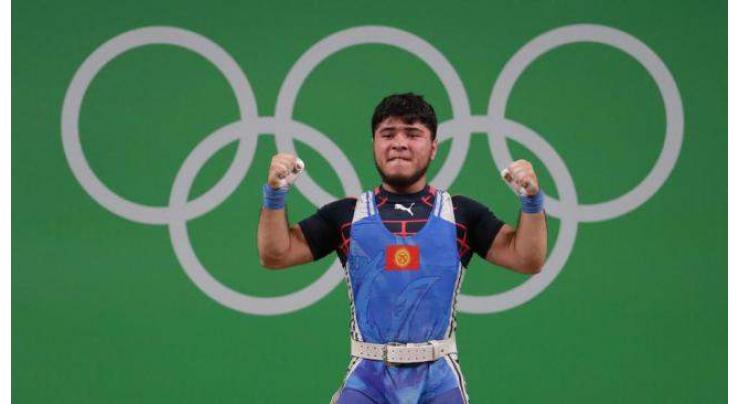
Kyrgyz Weightlifter To Appeal Doping Ban
Sumaira FH Published August 19, 2016 | 07:17 PM

BISHKEK, Kyrgyzstan, (APP - UrduPoint / Pakistan Point News - 19th August, 2016) : Kyrgyz weightlifter Izzat Artykov said Friday he will appeal the verdict that stripped him of his Olympic medal over doping use, accusing a French competitor of putting a strychnine steroid in his drink. "I suspect that the French weightlifter mixed doping into my drinks or food," said Artykov, who won the bronze medal in the 69kg contest and had since returned to ex-Soviet Kyrgyzstan.
"Of course I will appeal the decision," he told AFP of the Court of Arbitration for Sport Thursday ruling. "It's not fair." "I have never doped. I claimed my victory honestly," Azzat told AFP by telephone.
"I am in shock at this decision." Artykov, 22, won the country's only medal at Rio in the August 9 contest. The International Olympic Committee informed him three days later that he had tested positive for the strychnine steroid in urine samples. His medal was reallocated to Colombia's Luis Javier Mosquera. Kyrgyzstan's agency for youth and sports said Friday that the country's weightlifting federation is "preparing an appeal" over the decision on Artykov, who became the first sportsman to be deprived of a medal for doping at this year's Games.
The French weightlifter Artykov referred to, Bernardin Kingue Matam, had immediately cast doubt over the legitimacy of the 69kg contest after finishing eighth. "If the international federation and the International Olympic Committee do their job properly, I should go up at least four places because the top five are not clean," he alleged. Weightlifting has been among the sports most thoroughly tainted by the global doping scandal that has cast a shadow over the games in Rio.
The International Weightlifting Federation's chief Tamas Ajan told AFP Wednesday that Russia, Kazakhstan and Belarus would all face one-year bans from the sport after Rio. While the strychnine drug Artykov tested positive for is used as a rat poison, it is also a stimulant that has been used for more than a century in sport, including the Olympics.
Related Topics
Recent Stories

Mired in crisis, Boeing reports another loss

Session Awarding Ceremony 2024 held at Cadet College Muzaffarabad

Austrian ski great Hirscher to make comeback under Dutch flag

Pakistan, Japan agrees to convene 'Economic Policy Dialogue'

FM Dar conveys deepest sympathy on torrential rains devastation in UAE

Spain PM Sanchez says weighing resignation after wife's graft probe

Tennis: ATP/WTA Madrid Open results - 1st update

Long-lost Klimt portrait auctioned off for 30 mn euros

Osaka seals first win on clay since 2022 in Madrid

Earthquake jolts Karachi

Sindh minister orders operation after attack on police in Ghotki

TikTok to fight US ban law in courts
More Stories From World
-
Football: English Championship table
5 hours ago -
Time for 'democratic transition' in Venezuela: opposition candidate to AFP
6 hours ago -
Spain's Pedro Sanchez : a risk-taker with a flair for survival
6 hours ago -
Football: French Ligue 1 table
6 hours ago -
Nadal will only play French Open if he can 'compete well'
6 hours ago -
Ukraine, Israel, TikTok: the massive aid package before US Congress
6 hours ago
-
TikTok to fight US ban law in courts
7 hours ago -
Football: French Ligue 1 results
7 hours ago -

Spain PM Sanchez says weighing resignation after wife's graft probe
8 hours ago -

Long-lost Klimt portrait auctioned off for 30 mn euros
8 hours ago -

TikTok to fight US ban law in courts
8 hours ago -

Anger among Ukrainians in Poland as Kyiv halts passport renewals
8 hours ago



